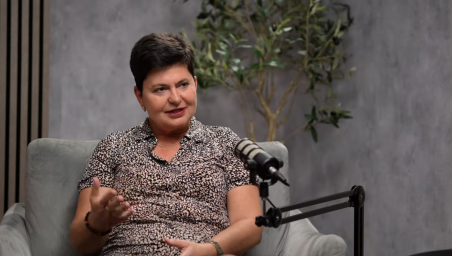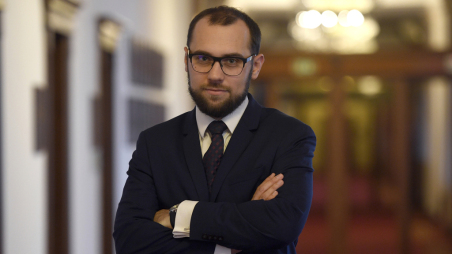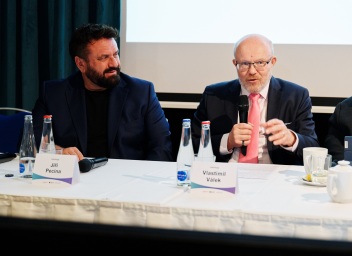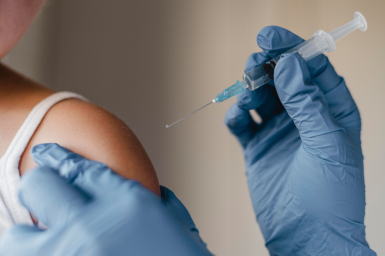The main approach in addiction policy, according to National Drug Coordinator Jindřich Vobořil, should be the principle of harm reduction. Bans and zero tolerance will not eradicate harmful phenomena from society. This is the approach he is trying to push through, despite many politicians and the recommendations of the World Health Organisation. Experience from other countries confirms that harm reduction works. Vobořil told more about the risks of addiction, the economic impact, the possibilities of regulation and the attitude of the current Czech government at the conference „The Economics of Prevention“ organised by the Healthcare Daily.
„We – as a society – still think that we can completely eradicate certain social phenomena by banning or even criminalizing them and they will disappear. But it doesn’t happen,“ Vobořil said. The policy of abstinence from harmful substances is, in his opinion, rather informative, but it does not aim at minimising harm and risks.

There is no money for prevention
In the Czech Republic, there are 2.1 million daily smokers and 980 000 daily alcohol consumers, with 70 % more of those who drink at risky levels. There are also up to 1.5 million users of psychoactive drugs, almost half a million heavy users of cannabis, 200 000 gamblers, a similar number of people with digital addiction and almost 50 000 users of hard drugs. The societal costs of addiction amount to 175 billion crowns annually, of which 100 billion are related to smoking and about 50 billion to alcohol. „But the public perception is the opposite. Tobacco is perceived as the least problematic drug,“ Vobořil said.
The different perceptions are also demonstrated by the different numbers of substance addicts who want to address their problem. „Only a few thousand people come to seek treatment for their addiction to cigarettes, while 37 000 addicts to illegal substances – that is 70 to 80 percent of users – come to some kind of help network,“ Vobořil said, adding that the situation is similar to that of chronic tobacco users and alcoholics, only a small minority of whom are committed to treatment. „Based on the action plan, we want to change this, but we don’t have the money,“ Vobořil said.

Yet prevention does not necessarily have to be expensive. „It doesn’t have to be in the form of posters or media appearances. We can work with doctors, with paediatricians, with schools,“ he said. But he added that governments have been reluctant to give money for awareness campaigns for more than 20 years. „If it wasn’t for the media, it wouldn’t be talked about,“ the national anti-drug coordinator repeatedly emphasised the contribution of the media.
Opinion on regulation is not unanimous
Vobořil also recalled the current government’s approach to the issue of addiction. In its programme declaration at the beginning of last year, the government set out a policy of harm reduction, among other things, by proportionately regulating addictive substances with regard to their harmfulness
However, the application of this policy is more challenging than it might first appear. Although there is general agreement on hard drugs, for legal drugs, especially various forms of tobacco use or gambling, the view on the correct regulatory setting is fragmented. Vobořil said that the government has so far been unable to find a consensus on the implementation of a risk-based tax package, despite the obvious different effects of different forms of tobacco and nicotine products.

The most risky products are those with combusted tobacco, i.e. conventional cigarettes, cigars and pipes, while those with smokeless tobacco are less risky and the least harmful are electronic cigarettes, oral and nasal sprays and patches.
Vobořil also presented the five pillars of the Addiction Policy Action Plan for 2023-2025, the first being prevention and treatment of addiction, the second being regulation of the market for addictive substances with regard to the riskiness of the products. „Here we are addressing whether new substances that are not on the list of banned substances, such as kratom or cannabis, should be regulated rather than adopting a zero-tolerance policy,“ Vobořil said. Other pillars are setting the tax burden so that tax collection is as efficient as possible, promoting the principles of addiction policy in line with the priorities of the Czech Presidency in the Council of the European Union and minimising the impact of the crisis in Ukraine on the addiction situation at home.
Harm reduction in spite of the WHO
At the same time, Vobořil lamented the World Health Organization’s (WHO) approach to regulating nicotine and tobacco products. „For the last two years, they have been pushing hard for nicotine substitutes to be regulated in the same way as cigarettes. There is something wrong with that,“ he said, wondering at the apparent disregard for the various harms of tobacco products and appealed to the journalists present from the world’s prestigious media to seek out the reason behind such an attitude. The Czech Republic therefore wants to push for a harm reduction policy in the European Union and other international fora, including the World Health Organisation itself. Not only the WHO, but some governments have also been accused by Vobořil of alibism around inaction with regard to the alleged lack of evidence of various harms.

Vobořil cited Sweden as a positive example of a country with a successful drug policy, where it has managed to meet the EU and WHO target of reducing the number of daily smokers to five percent of the population. „This is not because they have stopped using nicotine, but have switched to less risky substitutes,“ the national drug coordinator added at the Healthcare Daily conference. With the reduction in smoking in the Nordic country, the incidence of heart attacks, lung cancer and other smoking-related diseases has also fallen dramatically.
Filip Krumphanzl
Mohlo by vás zajímat
Photo by Radek Čepelák
We would like to thank the General Health Insurance Company, National Sports Agency, RBP, Health Insurance Company of the Ministry of Interior of the Czech Republic, Military Health Insurance Company, EUC Medical Group and Sprinx for their support of the conference.










